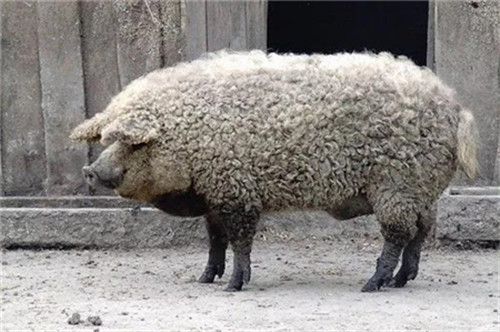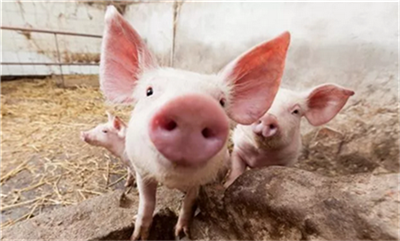How to prevent minor diseases of pigs? I'll give you a detailed explanation.
Hello, everyone. Today, Pig Pig will give you a detailed explanation of pig minor diseases. Porcine parvovirus disease, all called porcine parvovirus disease, is a reproductive disorder disease, which is a great threat to pregnant sows. If sows are infected with parvovirus, it is very easy to give birth to stillbirths or malformations. Since parvovirus is so harmful to pigs, how can we prevent it? Next, Pig will introduce the minor diseases of pigs.
Generally speaking, sows infected with parvovirus in different periods have different effects on the fetus. If the sow is infected with parvovirus before mating, the fetal mortality rate is very high, basically litter death. If the sow is infected with parvovirus during pregnancy, the fetus may still survive, but these fetuses are definitely carriers of parvovirus and will become a new source of infection. Parvovirus is highly contagious, and feed and water sources are all channels of transmission.

So far, there is no specific medicine for the treatment of small diseases of pigs, and the prevention and treatment is mainly based on vaccine immunization, supplemented by prevention and management. Parvovirus basically shows no symptoms to other live pigs except sows, and the main symptoms to sows are obstetrical and gynecological diseases, usually infertility, stillbirth, abortion and so on. The stillborn fetus of sows had subcutaneous hemorrhage and edema, and the surviving piglets showed dermatitis and diarrhea.
At present, there are five kinds of porcine parvovirus vaccines, namely, inactivated vaccine, attenuated vaccine, subunit vaccine, live virus vector vaccine and nucleic acid vaccine. These viruses have their own advantages and disadvantages. People usually come into contact with inactivated vaccines and attenuated vaccines. The other three vaccines are either expensive or have great hidden dangers, and it is difficult to promote them at present.
Inactivated vaccine antibodies remain for a long time, do not need cryopreservation, and are very safe. But the disadvantage of inactivated vaccine is also obvious, that is, the production of antibodies is slow, the cost is high, the effect is unstable, and repeated vaccination is needed. Attenuated vaccine not only has fast antibody production speed, good immune performance, but also relatively low cost, but its safety is unstable and there is a certain risk. You can choose the most suitable vaccine for vaccination.
When the reserve sows are mated for the first time, it is best to do two vaccinations 20 days before mating, and the two vaccinations should be 20 days apart, because the time for pigs to produce antibodies after vaccination is generally 15 days, which is more appropriate to do well in advance. Back-up sows have three consecutive births so that they don't have to do it any more. If the conditions are limited, you can have two children in a row.
Maintaining a good environment can also reduce the probability of parvovirus outbreaks. Usually must be regular disinfection, maintain a good enclosure hygiene, do not allow feces to accumulate. Feed should be safe and free from mildew. The water source should be clean and free from pollution. If necessary, you can add some Chinese herbal medicine to the feed to recuperate the body of the sow.
- Prev

The problem of sow lameness should be treated correctly in large-scale pig farms.
The problem of sow lameness should be treated correctly in large-scale pig farms.
- Next

Pig lice and flea control occurs in pig farms. Do you know how to control pigs?
Pig lice and flea control occurs in pig farms. Do you know how to control pigs?
Related
- On the eggshell is a badge full of pride. British Poultry Egg Market and Consumer observation
- British study: 72% of Britons are willing to buy native eggs raised by insects
- Guidelines for friendly egg production revised the increase of space in chicken sheds can not be forced to change feathers and lay eggs.
- Risk of delay in customs clearance Australia suspends lobster exports to China
- Pig semen-the Vector of virus Transmission (4)
- Pig semen-the Vector of virus Transmission (3)
- Five common causes of difficult control of classical swine fever in clinic and their countermeasures
- Foot-and-mouth disease is the most effective way to prevent it!
- PED is the number one killer of piglets and has to be guarded against in autumn and winter.
- What is "yellow fat pig"? Have you ever heard the pig collector talk about "yellow fat pig"?

